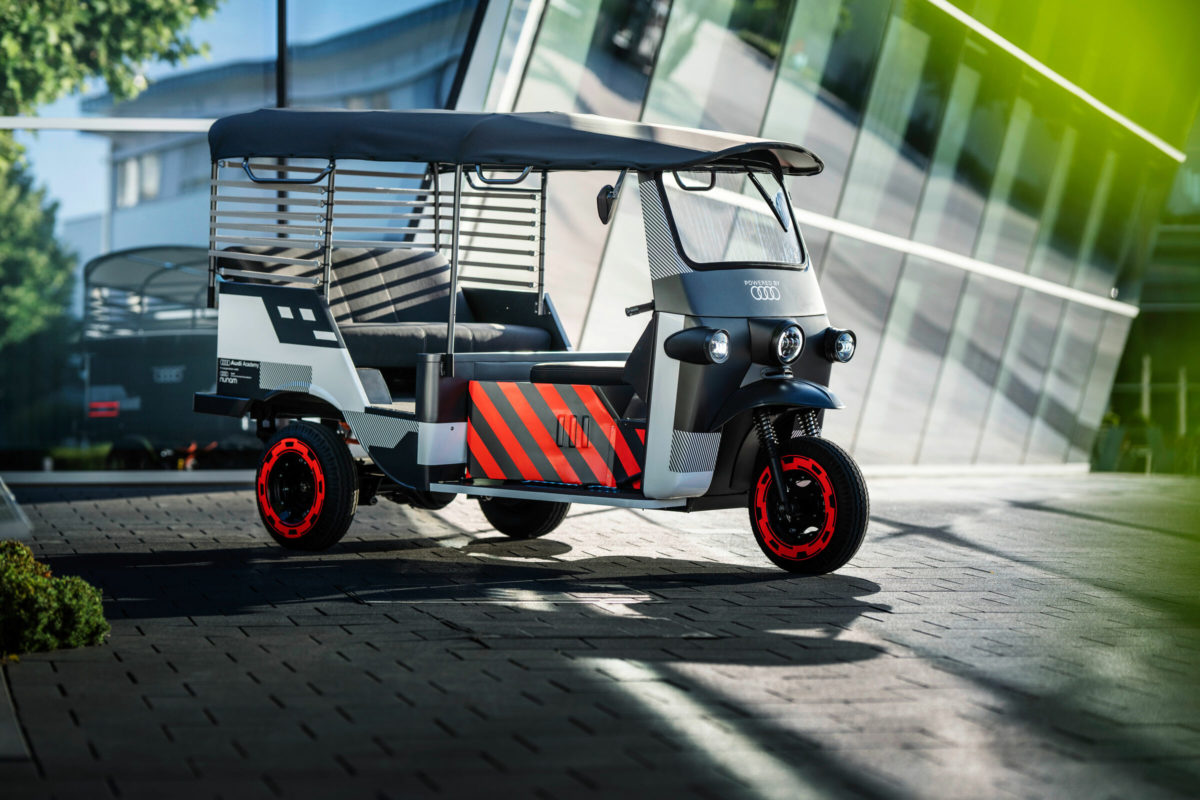Bengaluru-based battery startup Nunam is developing electric rickshaws powered by used battery modules from German carmaker Audi’s e-tron test fleet. The e-rickshaws, powered by second-life batteries, are scheduled to hit Indian roads as part of a pilot project in early 2023. They will be provided to a non-profit organization.
The Nunam pilot project aims to explore how modules made with high-voltage batteries can be reused after their car lifecycles and become viable for second-life use cases. The project also aims to strengthen job opportunities for women in India, in particular, as they will be given the e-rickshaws to transport their goods to markets.
Nunam is funded by the Audi Environmental Foundation. It has developed three prototypes in collaboration with the training team at Audi’s Neckarsulm site.
“The old batteries are still extremely powerful,” says Nunam cofounder Prodip Chatterjee. “When used appropriately, second-life batteries can have a huge impact, helping people in challenging life situations earn an income and gain economic independence – everything in a sustainable way.”
The startup’s primary goal is to develop ways to use old batteries as second-life power storage systems, in order to extend their lives and use resources more efficiently.
“Car batteries are designed to last the life of the car. But even after their initial use in a vehicle, they still have a lot of their power,” Chatterjee explained. “For vehicles with lower range and power requirements, as well as the lower overall weight, they are extremely promising. In our second-life project, we reuse batteries from electric cars in electric vehicles; you might call it electric mobility lite. In this way, we’re trying to find out how much power the batteries can still provide in this demanding use case.”
Rickshaw drivers primarily charge their vehicles with public grid electricity, with much of that capacity coming from coal-fired power plants. To make the e-rickshaws completely green, Nunam has developed a solar-powered EV charging station. Throughout the day, rooftop solar panels on the local partner’s premises will charge the e-tron battery, which will act as a buffer storage unit. In the evening, the power can be passed over to the rickshaws.
Nunam will also take back batteries and recycle and repurpose them for stationary applications such as LED lighting, or to provide raw materials for new battery production.
“We want to get everything possible out of each battery before recycling,” said Chatterjee.
This content is protected by copyright and may not be reused. If you want to cooperate with us and would like to reuse some of our content, please contact: editors@pv-magazine.com.









By submitting this form you agree to pv magazine using your data for the purposes of publishing your comment.
Your personal data will only be disclosed or otherwise transmitted to third parties for the purposes of spam filtering or if this is necessary for technical maintenance of the website. Any other transfer to third parties will not take place unless this is justified on the basis of applicable data protection regulations or if pv magazine is legally obliged to do so.
You may revoke this consent at any time with effect for the future, in which case your personal data will be deleted immediately. Otherwise, your data will be deleted if pv magazine has processed your request or the purpose of data storage is fulfilled.
Further information on data privacy can be found in our Data Protection Policy.